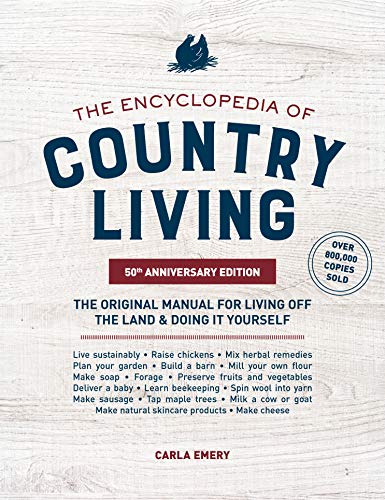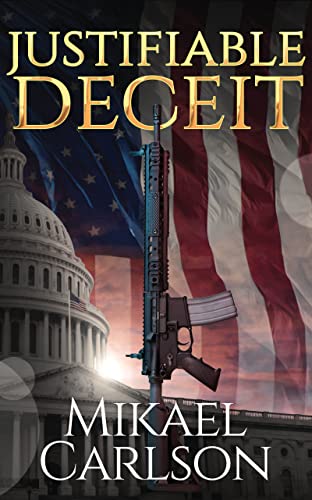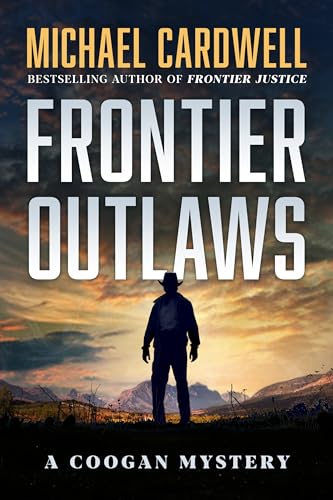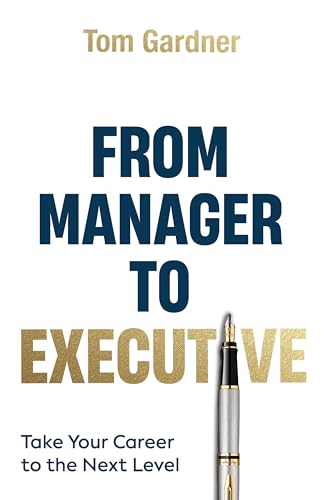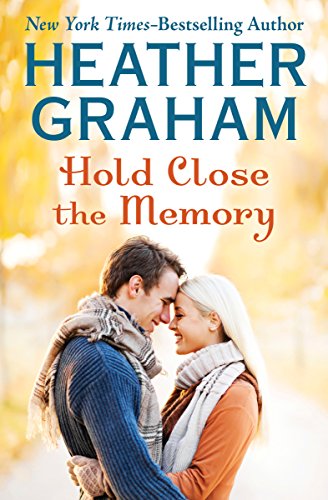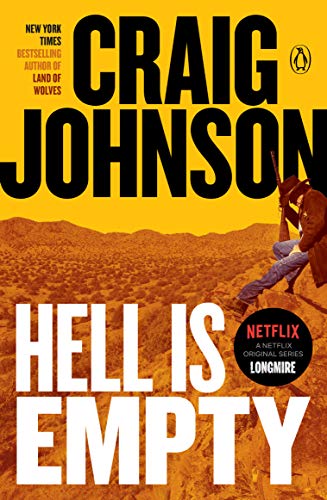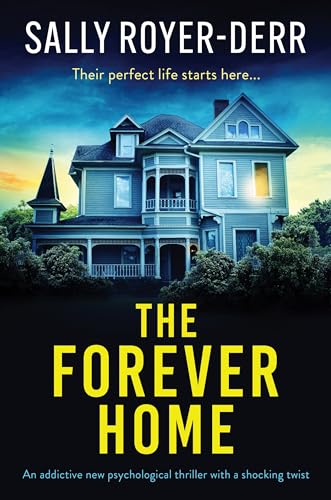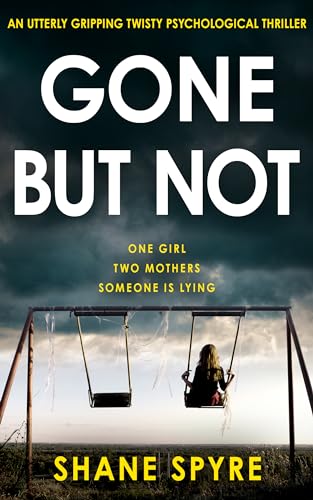an excerpt from
After the Fog
by Kathleen Shoop
Copyright © 2014 by Kathleen Shoop and published here with her permission
Chapter 1
Tuesday, October 26th, 1948
Donora, Pennsylvania
Inside the Greshecky home, Rose pressed the light switch but knew it wouldn’t work. Ian appeared, his form outlined by the paltry light slipping through a gap in the wood siding. Even in darkness his complexion—white as the smoky plumes billowing from the zinc mill—told Rose things were not well with his Aunt. He opened his mouth, but Rose grasped his shoulders and shoved the twelve-year-old toward the kitchen before Ian could form a single word.
“Heat the water. Get the clean towels we hid away for the birth.”
Ian looked at his feet, but didn’t move.
“Go on. You remember,” Rose said.
Ian nodded.
Isabella’s screech from the back of the house summoned Rose toward the bedroom. She groped the walls trying to remember the placement of the furniture. The last thing she needed was to trip and fall. She stepped where the wood floor dropped a few inches into an unfinished dirt path, stumbled and twisted her knee. She grimaced and fell back against the wall, bent over, grasping her throbbing leg. Nothing felt out of place. Another wail. Rose pushed off the wall and limped down the hall toward Isabella. She slammed open the bedroom door, tearing it from its hinge.
In the middle of the shadowy room, Isabella squatted as though urinating, her nightgown splashed with blackened blood, its thick iron odor choking the air. Rose hooked Isabella under the arms and hauled her toward the window, and the mattress on the ground. Rose dug her heels in; thankful traction was the one good attribute of having a mud floor.
She gritted her teeth, wanting to reassure Isabella, to remind her of the slew of births Rose had assisted over the years. But Isabella’s awkward two hundred pounds consumed the energy Rose might have spent on reassuring words.
Isabella groaned and bucked forward. Rose knelt in front of her on the mattress, praying for the moon to move a sliver to the right and illuminate the shadowy room. Rose needed to assess why there was so much blood; Ian was spooked enough to forget the candles she had requested, and his uncle, the baby’s father, was on shift at the mill.
Rose gripped Isabella’s knees and tried to wrench them apart. “It’s all right, you can let go. It’s okay, Isabella. Baby’s coming.” Isabella’s legs gave way and fell open as she dropped back onto the mattress, gasping. Rose felt between the woman’s legs to the baby’s crowned head. She felt a surge of panic at Isabella’s sudden silence, but pushed her fear away.
Rose supported the baby’s head and reached for Isabella’s hand. She squinted, trying to gauge if Isabella’s nails had blued from lack of oxygen, but it was too dark.
“Isabella? You all right? Baby’s here. Prop yourself up, you don’t even need to push, he’s coming, he’s—”
The baby slid out, bringing the usual tumble of cording, but so much more Rose thought she was witnessing the birth of triplets. So much flesh falling through her fingers in the darkness. The rush of blood warmed Rose’s knees, saturating her nurse’s uniform as if it were consuming it.
Her breath tripped and sputtered as she fumbled through the mass of expelled tissue and peeled the baby away. She flipped the body over, whacking its back. Part of Rose understood what she was experiencing, but in the darkness, she could pretend.
“It’s a girl, Isabella. Your baby girl’s here. Just like you wanted. A girl to stay by your side.” Rose worked quickly, firmly opening the baby’s airway and bracing her against her chest, warming her back to life. The baby was definitely full-term, but too thin, and not breathing, heart stilled. Rose cursed herself for not forcing Isabella to take the labor inducement, but the woman thought God alone had the right to induce anything.
“Auntie Bella?”
Rose snapped around. She hadn’t heard anyone come into the room. Behind her stood Ian, a nearly invisible form holding fresh bleached towels that glowed in the twilight. The image of a happy birth flashed through Rose’s mind, a plump, pink baby and healthy mother. Rose’s heart heaved with desolation at what Ian was about to understand.
She waved Ian to her. “I need you to hold this little princess while I tend to your aunt. And, get the scissors from my bag.”
He nodded, handing over the downy towels and dashed to Rose’s bag. She didn’t have time to tell him how to be sanitary when handling them, too busy toweling the blood and fluid from the baby’s eyes, her own burning from the emotion she was stuffing away.
Ian dashed back with the scissors, thrusting them under Rose’s nose.
“She’s okay, right? Both of them?”
Rose lay the baby on the towel, not saying a word, and cut the infant’s cord. Next she swaddled the baby and handed her to Ian. She shuffled him toward the chair across the room and ordered him to sit; fearful he might pass out, afraid if he wasn’t in the room, she might.
Rose resumed her attempts to stop Isabella’s bleeding and rouse her with soft words, knowing the woman died with the birth of her daughter. Even without surgical lighting, Rose saw the woman’s uterus had been expelled with the baby and even in a hospital, it was unlikely she would have survived.
“Sweet Isabella,” Rose whispered, wiping the woman’s hair from her brow. “I’ll put in a call to Dr. Bonaroti.” Rose wiped her hands on the uniform’s apron; angered the physician hadn’t made it to the birth.
“No phone, Nurse Rose,” Ian said, “‘member last time yunz guys come down the house for—”
Ian began hyperventilating, his body shuddering rhythmically, bouncing him out of the chair. His desperation jolted Rose’s own grief. She dashed toward the boy grasping his arms.
“That’ll be enough, Ian. I need your help.”
He looked up, snot flying from his nose, saliva at the corners of his mouth like a rabid animal, and she grabbed him from the chair, hugged him so tight he choked. She held him there, baby between them. Rose eased his pain with the warmth of her skin, hoping that she could stave off the sadness he’d feel as he grew up without his aunt.
“Now Ian. You need to go next door and phone Dr. Bonaroti.” Where was that damn doctor? This was exactly why Donora needed to fund Rose for the next year. If her nearly one year serving as a community nurse had shown her anything, it was that they actually needed three nurses. Just two more months of funding and the program was shot if their data wasn’t convincing.
Rose took the baby and guided Ian from the room. “Tell Alice to tell the doc it’s an emergency.”
She rubbed his back and wanted to say everything would be all right, but she knew nothing would be fine for young Ian. His uncle had a lust for booze and when he wasn’t breaking his neck in the zinc mill, was inattentive even at his most benign.
Though she would have given anything to be one of those people who could lie to make someone feel better, she had discovered through the losses she’d experienced in life, she was not that kind of woman at all.
* * *
With candles finally lit and a mixing bowl of water by the bed, Rose wiped Isabella’s crusting blood with a moist pledget. The blood had hardened into shapes, a map of where a life had drained from a body; the heaviest, black splashes were caked near the opening that should have delivered the world vibrant life instead of death.
Rose swallowed tears and cleared her throat. More could have been done for Isabella. If only there was more than one community nurse in town. No time for tears. She prayed for Isabella, repeating Hail Marys and Our Fathers hoping somehow the act would help usher the lost souls into the afterlife.
A door slammed somewhere in the home and Rose stopped her work. Her lips kept perfect prayerful time. Dr. Bonaroti barreled into the bedroom, stopped short behind Rose, kicking dirt up from the primitive floor. His unusual silence conveyed sorrow that a patient had met her end in the way she had.
“Doctor,” Rose said without looking up from Isabella’s leg.
“Rose.” His voice was low.
She washed Isabella’s legs. Her touch was firm, but gentle, scrubbing as though Isabella’s spirit might feel the cleansing of her flesh. With her free hand, Rose fished around the bowl beside her for another pledget and held it up to Bonaroti. He shuffled around Isabella’s body, taking his place across from Rose.
The doctor and his nurse bathed Isabella in silent, tandem rhythm that reflected their sadness and expertise in caring for patients for decades.
When they finished, Rose got the white sheet she brought with her and snapped it into the air, releasing its fresh scent. It billowed up and out before dropping and draping Isabella’s still bloated shape. Bonaroti examined the baby and scribbled on his documents, lifting his gaze to Rose periodically. She met his eyes with a nod, noting that this death was particularly hard for him. In most situations, he was not afraid to infuse the moment with his dry sense of humor.
Rose wrapped the infant in a small blanket and marveled at her blemish-free face. Somehow they must be wrong; this infant, with no outward signs of death was really alive. Rose unwrapped the baby, listened for breath again, felt for the rush of blood where thin veins and arteries ran inside her tiny wrist. Certain the baby was dead, Rose tucked the precious bundle inside Isabella’s arm as though they were asleep after a late night feeding.
“You’re not going to try and baptize this one? Not going to call the priest?” Dr. Bonaroti said.
“I wanted to. But she was dead on arrival.” Rose cleared her throat worried the tiny soul would live in limbo, caught between heaven and hell. She sped through another Hail Mary and asked God to let this one pass through the gates without baptism. That couldn’t be right, sentenced to an eternity in limbo for lack of one breath and a splash of water over your brow? Rose didn’t think it was true, but still her heart clenched in dread.
Rose took one final look at mother and child and smoothed Isabella’s hair from her face, her fingers lingering, offering final comfort to a body no longer in need of human touch.
* * *
Outside the Greshecky’s, Rose sent Ian next door to the Draganac’s who agreed to take him in until his uncle finished working. Rose shifted her weight, hands on hip. In the early morning, the cool air mixed with her perspiration and chilled her. She waited for Doc Bonaroti to emerge from the house to discuss the coming day’s plans. Though standing by herself on the hill above town, she was hardly alone. The familiar machinations of sleepless Donora kept her company.
Down below, carving the land nearly into an island, the horseshoe-shaped Monongahela River pushed northward. The “Mon,” as locals referred to the river, fed Donora’s steel, wire, and zinc mills—three full miles of industry. The town was located twenty miles south of its big steel sister, Pittsburgh, but was no less important. Incorporated in 1901, United States Steel had gifted Donora with its prized zinc mill in 1915 for the loyalty of the steel workers. Donora understood the power of steel and the way it fueled their existence.
Rose yawned and stretched as the last of the lights snapped off in the Draganac home, hoping Ian might sleep even for a short time. A burst of fire drew Rose’s attention back down the hill. Like triplets, the three mills shared patronage, but each bore its own personality, voice and strength. The three industry siblings were the heart of the town—the reason Donora existed.
They shared veins and arteries in the form of rail systems, and each worked non-stop swallowing raw materials and spewing waste while producing steel to be flat-rolled and sheared, galvanized with zinc and finally driven into the world to gird the infrastructure that built and armed the greatest nation known to man.
The open hearth and blast furnaces were the family show-offs. Their fiery displays mesmerized onlookers with rushing flames, bringing people to a halt as though the hot work was a circus act. Even disposing of the furnace waste—the slag—inspired awe. Poured from rail cars the molten, lava-like debris lit up the sky as it spilled down hillsides in Palmer Park or into the Mon where it cooled and hardened, creating a sturdy riverbank.
Rose tapped her toe, keeping time with the firing of metal through molds in the wire-works—the loudmouth, most practical of the three mills. Its sensible nails provided never-ending uses as Americans clamored to build homes after the war. The rhythmic, measured beat of nails being shaped to industrial perfection accompanied life in Donora. It was a normal occurrence and expected, like breathing.
Rose checked her watch. Bonaroti and one of the funeral directors, Mr. Matthews, should be finishing up inside. Rose thought of Mr. Greshecky working in the zinc mill. That mill was the moody sibling. Everyone knew its value and so its punishing, scorching ways were overlooked. It produced a substance that protected steel from corrosion, keeping the products of the other two mills, rust-free, forever functional. The mill was so hot many workers toiled in four-hour shifts, rather than the typical eight.
Rose rubbed a knot in the back of her neck. Out of the corner of her eye, she saw a light go on in the Hamilton home and a flash of the missus as she passed by a window. Like the mills that never stopped, Donora’s residents rarely did either. Sixty-five hundred of the fourteen thousand residents labored in the mills. Most of the men who weren’t employed there worked in businesses that supported them in one way or another.
And the women and children—their lives were wrought by the mills every bit as much as the steel produced inside them. Up early to feed husbands off to the day shift, and staying awake late into the night hours to cook for sons on the night shift, the women worked nonstop; children ate dinner at odd hours and opened presents as close to Christmas morning as their fathers’ shifts allowed. No one, nothing, in Donora was exempt from the body cracking, character-building work required of their lives.
And standing there in what would amount to the most quiet moments of Rose’s day she wondered what it would be like to experience true silence, with no machinery underwriting every second of her life. She heard the slam of a door and looked over her shoulder to see Doc Bonaroti emerge from the Greshecky home, his dour expression making the ache in her neck worse.
Bonaroti shrugged then kicked at the curb. Rose knew he was discouraged if he was risking a scuff on the toe of his perfectly shined shoes.
Rose sighed. “So. What are our options for funding as we head into the last two months?”
He pushed his glasses further back on his nose. “Present our case to the Easter Seals society, Women’s Club, Red Cross—”
Rose’s teeth chattered, and she pulled her coat tighter. “Fanny has plans for the Red Cross donations.”
Dr. Bonaroti nodded and held up his hand. “The new superintendent’s wife is the head of the Women’s Club now. She’s willing to look at your data, to go with you to the Lipinski’s and to another home of your choosing—”
“To what? To watch me work? No. Think of the patients. They aren’t zoo animals.”
Bonaroti set his bag at his feet and pushed up the arms of his suit-coat, revealing a trail of cheap watches people had used to pay him for his services. This was his way of reminding Rose that if citizens of a small town, even one with three thriving mills had to regularly pay a doctor with watches and the occasional hen, then she needed to make a damn good case for paying a community nurse.
Rose shrugged. “You’re right. I made twenty-five hundred calls in the last ten months. We need three nurses if we need one. So, whatever it takes, I’ll do it. We can’t have more Isabellas.”
Bonaroti pressed his lips together and pushed down his sleeves. He grinned, lifting his bag. “And a dentist, Rose. The Community Welfare Committee over in Moon Run springs for a dentist for the miners’ families. Surely we can rustle up some cash for a dentist to take a look at all these mouths full of mottled teeth.”
He started down the steps that served as sidewalks, a necessity in Donora due to the sharp angle of the hills. The fog was thick and hid him from Rose though she could hear his footsteps.
“Let’s get my services paid for another year,” Rose said, lifting her voice. “Before we add a dentist to the mix, don’t you say?”
“Yes, let’s.” His disembodied voice carried over the groaning tugboats and screeching trains below.
Rose straightened and took a deep breath, wondering how she’d make it through the day with all that had to be done.
* * *
The time between a difficult call and arriving home gave Rose a chance to reflect, to feel gratitude, to pray. She plodded through the misty night, negotiating uneven cement walks, moving slower than she liked, the fog adding heaviness to the darkness of the early morning hour.
Around her, four hundred-fifty feet of mountainside lurched into the air, and slumped over the valley. Near the mills the narrow, soot-encrusted homes of its workers marched along the flatlands. Heading up the hillsides, houses were stacked; clinging to dirt and rock like children nestled to their mother’s chest.
Rose enjoyed knowing the social makeup of the different sections of town and what that meant for her service to the people. Like a parent checking on children, opening bedroom doors and peeking inside to be sure they were sleeping peacefully, Rose did the same as she trekked home. She paused at certain addresses mentally ticking off whether all seemed well. She made lists of who she needed to check on the next day, which people might be still be suffering after an earlier visit and who was covering up an illness that needed to be addressed in the first place.
One section of Donora called Cement City boasted cement walled homes, built to last centuries and keep mill smoke out of the house. They were designated for mill management and lower-rung hotshots. Overlook Terrace, at the other end of town, was for the superintendents of each mill. But streets like Murray Avenue, where Rose lived, were home to American born newspaper editors and immigrant laborers. Some folks had money tucked away in Mellon Bank, growing as fast as their post-war families and others had barely managed to save a few dimes.
Donora was full of people with all manner of education, breeding, and heritage. There were twenty-two churches and a synagogue in the compact town, yet somehow they managed to live happily. Rose knew much of the contentment stemmed from steady work in the mills. The promise of a secure source of income helped people keep soft hearts and open minds toward neighbors.
Rose reached her hodgepodge home, drew a deep breath and sighed. She would not have enough time to sleep so she surrendered to the work ahead, hopeful that her large family would do their part to help.
She grasped the oversized doorknob, and heard familiar huffing and puffing. Before she could turn, the mutt gently clamped her ankle with his mouth and licked her. Its stinking slobber wafted through the thick air.
“Stupid dog!” Rose shook her foot to loosen its grip and grazed the dog’s muzzle. It collapsed into a ball, tail tucked in. Rose covered her mouth and squeezed her eyes shut. Go away, she thought, I don’t like animals. Rose had learned lack of cleanliness was host to many deadly or debilitating diseases. So, she’d decided long before that when she met an animal that didn’t carry disease or filth with it, she’d let it in the house.
Rose exhaled and stood over the pooch, disapproving of its shaggy fur, the ropey knots resembling the rags she used to clean house.
“I’m sorry I caught your nose with my foot, but you shouldn’t be here.”
It lifted its gaze and let out a raspy cry. Rose stared back, clutching her nurse’s bag to her belly. “Now go on, you raggedy rags!” He bolted, leaving a fresh burst of sour odor of scabby filth in its wake.
Rose twisted the doorknob, threw her body against the side-door and heard the usual screech across the linoleum. Inside, she fell back, shoving the door closed. She tried to wipe the sound of Ian’s sobs from her mind.
A rush of hot air from the radiator beside her flushed her face, and raised a rancid, bloody odor from her clothing. She looked at her watch. Five A.M. She felt every minute of the sleepless night. But The Techniques and Expectations of Community Nursing Manual demanded Rose immediately cleanse all used instruments and containers after a call. She swallowed a yawn and said another prayer for strength. Nursing meant everything to her; she was proud of her skill. To Rose, being a good mother was a given. She had no choice but to give her children a solid upbringing, but nursing gave her a sense of self-worth she’d never quite found any other way.
All she needed was a sip of water before she set to clean her instruments and start breakfast. Rose shook off her tweed coat. She sighed as she hung it on its own hook as per manual instructions, away from the other coats that draped the rickety coat-rack in the corner, behind the door.
Rose entered the kitchen and stopped short at the sight of her seventeen-year-old son hunched over the percolator, measuring coffee grains into the metal basket. Her jaw dropped at the sight of what he was using as a measuring tool. Urine sample cups. It didn’t matter that Rose scrubbed them after use with the prescribed green soap until they gleamed; they were still vessels for bodily fluids.
“Johnny? What the hell are you doing?”
He emptied one into the basket. “Making coffee?”
Rose wanted to rip the cup from his hands and beat him on the skull with it, but didn’t have the energy for it. “They’re urine cups. You’re damn lucky those college football scouts don’t make surprise visits to be sure you fellas are as smart as you look on paper.”
“Gee thanks, Mum.” Johnny laughed, dumping the coffee into the garbage can. “I was wondering why we had six coffee measures.” Rose got a whiff of alcohol as he turned toward her. He wouldn’t drink on a school night? Not him. Not her baby.
“Geez-o-man, Mum, that blood.” He covered his mouth and collapsed over the sink, retching.
Rose shook her head at his weak stomach, patted his back and leaned her hip against the sink. She sniffed near his mouth; the odor of booze was gone as suddenly as it had been there. Exhaustion must have been taking over her sanity.
She yanked open a drawer and flipped a worn dishcloth to Johnny. He wiped his mouth and straightened, leaning against the sink, mirroring Rose’s stance.
Rose fluffed his hair, its Vaseline sheen lost during the night. “Go back to bed for an hour.”
“Can’t sleep.”
Rose put her hand over Johnny’s. “You have a big week ahead of you.”
He stiffened. A grimace flashed across his normally affable expression. Rose was hard on him regarding his future, but she knew when to push and when to let go. An argument about the importance of college and a scholarship wouldn’t help anyone at this hour.
“I was wondering,” Johnny said. He squeezed Rose’s hand and seemed to search her face for permission to continue. “Maybe we could talk about college. This week, before the game.”
Rose closed her eyes and bit the inside of her cheek. She could not have this conversation again. “Sure, college. We’ll talk about how you’re getting a football scholarship and heading off to live it up in a fraternity house, smoking cigars after colossal wins and big tests. You just rest up for your game.”
Johnny laughed. “I know. Good rest, good food, good game on Saturday.”
Rose caught the mockery as he repeated the words she said to him many times. Johnny was a good kid and must have been tired, and Rose let his sarcasm pass. She could trust him, but couldn’t trust that she would have money to fund the community nursing project another year.
So, she put her focus there—on her nursing skill and experience that would persuade the new mill superintendent’s wife to direct any charitable funds she could toward the project. It wasn’t in Rose’s nature to ass-kiss and it would take all her attention and energy to do it well. Conflict upon conflict would not help anyone.
“You’re a good boy, Johnny. Keep your wits about you and say your prayers and everything will be fine. You follow our plan and someday you’ll be falling all over yourself to thank me.”
He nodded and headed toward the hall, jumping to slap the doorjamb as if he were dunking a basketball. He turned back to Rose. “Oh, yeah,” he said, “Something’s going on with Magdalena. Said she’s not roller-skating with the girls after school, even if all the smart boys are going to be there. She had that look, that scrunchy one where you know she’s going to lay you out if you press her one more second.”
Rose turned on the faucet and washed her hands. Magdalena was as moody as Johnny was jovial. They may have been twins, but in recent years they seemed to take different emotional paths through life.
“I’m familiar, yes,” Rose said, pulling a coffee mug from the cabinet and setting it beside the percolator.
“Mum, this thing with Mag. I mean, I know you’re busy, but this time you really should stop and just really listen. She needs you. That’s all.”
Rose nodded, but was already rehearsing what she’d say to Mrs. Sebastian to demonstrate her value, to persuade her that even the most destitute citizens deserved health care.
Johnny shrugged then spun into the air, whacked the doorjamb and disappeared into the hall.
“Next time, take a rag and wipe up there if you’re going to be jumping that high, anyhow.” Rose felt a smile squeeze her cheeks before sadness made her bite her lip. He was a smart kid. She could trust him, couldn’t she?
“My sweet, sweet boy.” Rose said to no one. “You just keep your shit straight and all will be well.”
Chapter 2
Rose headed into the cellar to clean her instruments. She felt along the wall for the light. The paint lifted from the plaster like a leper’s skin. The cellar was built to hold coal, a toilet and a cinder block shower that cleansed the bodies of smoke-caked steelworkers. The shower kept a marginal amount of soot out of the house. At least it made the housewives in Donora feel as though it did.
In a room dimly lit by one bulb, Rose waited for scalding water to fill the utility tub. The scent of bleach and green soap overwhelmed the space. Rose placed her instruments into the water to soak, and changed out of her uniform. She plucked the buttons and specks of Isabella’s dried blood flicked off the fabric.
She shook her uniform down and stepped out of it. Only the hem of her slip was blackened from the mill smoke outside. She rolled down her stockings and analyzed them for future wear. For night calls perhaps, bleached to nearly nothing, they might pass.
Rose dunked her uniform into the water and rubbed at the material, scouring away thoughts of sadness and loss. In a second tub, hands plunged into the water; she scrubbed her instruments, intent on scraping deathly images from her mind with the cadenced movement of her work.
The sound of someone stumbling startled Rose. On the steps, arms extended above his head, stood Unk grasping the bare wood boards crisscrossing the low-slung ceiling.
“Sweet Jesus, you scared the living hell right out of me.” His blaze-white legs caught her attention and her gaze trailed past his arthritic, cauliflowered knees to his veiny thighs, and finally to his shriveled penis and dangling sacks.
“Ahh, Unk. Your pants.” Rose snatched a scrap of rag, dried her hands and hurried toward him. “Where are your night-pants, old man?”
Unk’s face whitened with the fight he constantly had with his bad lungs. “Rosie? The mills? Any word?” His words came out in a squeak.
He stepped further down and braced himself on the banisters. Rose grasped his torso to support him and shook her head. “You’ll break your damn neck and be half-naked doing it. How’ll that look when Doc comes to set your hip or your arm or whatever?”
Unk’s slack jaw and narrowed eyes conveyed confusion. His chest expanded, thick with phlegm, and he coughed into his hand.
Rose sliced the air with her hand. “Stay in bed, Unk. Doc said not to wander the house at night. You’ll snap your neck.”
He begged Rose for some vodka. “Just comin’ to get the money,” he said. “Damn kid lost it again. And, a nip while you finish the instruments. I’ll be good. Just sit here loungin’ a bit. Don’t want to be alone.”
Rose ignored her sadness at Unk’s beginning signs of dementia and settled him onto the stair. His breathing settled down. She certainly understood Unk’s desire not to be alone—she’d grown up in an orphanage and the brittle pain from that experience still came to mind when she least expected it.
Rose reached above Unk’s head into a small opening between the studs in the exposed wall, dislodging a bottle of vodka. She opened the lid and took a swig before putting it to his lips, cradling his chin as he swallowed. Rose closed her eyes and let the vodka warm her insides and dissolve the sudden helplessness she felt.
If Unk was wearing pants, his company would have been welcomed. She could not allow him to sit naked in a filthy cellar. She screwed the lid back on the vodka and tucked it back into its nest.
She took his elbow and guided him up the front stairs. “This has to stop.” Rose said.
“Shut up, Rosie. You’re just not that nice.”
“Ah, you shut up, old man.”
“I just wanted to get the money. He lost it again.” Unk turned to Rose. He opened his mouth to say something else, but he never formed words.
“Who lost it again? Not Henry.” Rose searched Unk’s face for the answer. “Buzzy? Again?” The thought of her brother-in-law gambling away his pay was too much for Rose to handle that day, any day, really. For two decades, she and Henry had cleaned up his messes and she’d had enough. Henry assured Rose that Buzzy would not gamble again. And if there was anything in her life that was not a crock of bull it was the word of her husband, Henry.
Unk opened his mouth again, but nothing came out. The whites of his eyes were yellowed, his jaw slack, saliva at the corner of his mouth curving down his chin.
With her thumb she wiped away the moisture, and cupped his face, his prickly whiskers pinching her palm. She put her free hand on the small of his back and nudged him forward. He buckled and Rose positioned herself behind him, her shoulder in the middle of his back.
“Go on, Unk, I have you.”
They stepped upward.
“Could solve all these problems,” Unk said, “if yunz guys would just save some money for once.”
Rose pushed against his body, to keep them both steady and heading upward.
“I see what you’re saying.” Rose rolled her eyes, knowing he understood the many ways Rose and Henry had shared and lost their money to family members, not their own careless spending. The dementia ripped his memory and when he tried to form coherent thoughts, he stitched facts and words together like a crazy quilt. Colorful, but not at all representative of their initial form.
“I can’t shave you today,” she said. “I’m due to show one hoity-toity lady the benefit of community nursing. Need to get her to loosen up her purse strings so our citizenry can keep in good health.”
Unk grunted in response. His foot caught on a step, reminding Rose of when her children first learned to walk up stairs. She wished she had time to take extra special care of Unk.
But, if she couldn’t get Mrs. Sebastian to fund the clinic, it would close until they found another revenue source. They’d been funded for one year—the project’s first year—to see if Donora could even use one nurse the way Pittsburgh used dozens. Rose’s thousands of home visits reassured her; the answer would be yes. They didn’t need the entire operation funded, but enough for the over fifty percent of patients she saw who didn’t have insurance or couldn’t partially pay.
“I’ll send Magdalena to shave you before she heads out to school,” Rose said.
“She’s cranky that one. A beauty, but touchy,” he said. “And what about that money? Lost it again. Call Doc Bonaroti. He’ll be in the know.”
Rose and Unk stopped on the landing that led to the third floor. She bent over; resting her hands on her knees while Unk leaned on her back, digging his fatless elbows into her spine.
“It’s not right to fib, Rosie,” Unk said.
She craned over her hunched shoulder to see from his expression if Unk was purposely forming these thoughts. “What?” Rose said.
“Everyone’s a liar, Rosie. Everyone. ‘Cept Auntie Anna, ‘course, not her.”
Rose laughed. That didn’t help narrow the fibbers’ pool. A rectangular shot of daylight came through a window and lit the worn braided rug. The chute of brightness bulleted through the air, illuminating all the dust particles people never noticed until they blanketed the entire house.
“Oh come on, old man.” Rose said and stood. She couldn’t shake off the feeling that Unk was confused as expected, but maybe not completely off in what he was getting at. And, as her twenty minutes tending to Unk turned into forty, she decided transforming the living room into a convalescence room might not be such a bad idea after-all.
* * *
Sara Clara from The South. That’s what they called her. It shouldn’t have bothered her. But the way they said it, spit from clumsy Western Pennsylvanian tongues, it stabbed and mocked her, endlessly reminding her and everyone else she was an outsider. There in her shoebox-shaped bedroom she would burrow under her covers, taking shelter from the list of things to do that blitzed her at every turn once she left it.
Sara Clara ran her fingers down her throat and forced a cough to be sure she was still alive. Suffocating. The town, the family, the mills, the house—all of it recalled the dirty wool socks her brothers used to stuff in her face when they crammed her into the clothes hamper for the fun of it.
The difference was her former clothes hamper was gilded and she knew deep down, her brothers loved her. Nothing in Donora was gilded. And though everyone acted as if the glittering steel that belched from one end of town to the other was gold, Sara Clara knew the truth.
She lay in her husband’s childhood bed naked except for a pair of yellowed underpants, and pulled the thin sheet to her chin and flung one arm above her head, the other draped out to the side, clawing at the mattress. Sara Clara wished Buzzy was beside her instead of slaving away all night then sleeping all day while she tried to make Rose and Henry like her, make friends with anyone, and raise a son in a town where no one had the time for her.
Years back, when Sara Clara had met Buzzy at a North Carolina bar full of airmen, Buzzy had gushed about his home. Oh, how all of the Pavlesics would love her, Buzzy had said. Everyone would. His face flushed with the tales of the way money was forged from the earth, ripped right from the ground the town was built upon. Like money grew on trees—it was the same thing, he told her.
But, it wasn’t just the idea that Buzzy might make a fortune once they went up north that attracted her. It was the way he looked at her, as though she were a prize, as though he’d never seen a more beautiful, perfect woman in the world. That was what kept her up at night as she replayed every moment of their time together before they were married.
The love for her that she saw in his face and felt in his touch was like nothing she’d experienced. That and the possibility of money, to have the type of life she was used to, but in a new place, was enough to make her leap at the chance to follow love, to make a change.
She closed her eyes and tried, yes, there it was—the memory of that tender, glowing sensation that accompanied the smile when she agreed to marry Buzzy. Alone in his bed, lost in memories, she could feel Buzzy pull her into a kiss, his hands working their way down her body, bringing their marital promises to life. She was filled with longing, love and hope.
Then they arrived in Donora. All that thick desire was squelched like a coke oven dowsed by cooling water. She might as well have been from Siberia for all western Pennsylvania had in common with North Carolina. Sara Clara’s finishing school education and refined Southern manners were simply not appreciated in a place where people (young, old, rich, poor, immigrant, native) allowed filthy mill shifts to shape their calendar.
It’s not that she wasn’t familiar with mill-life—her family owned three in Wilmington. But Donora’s steel mills didn’t just churn out the materials that built the country; the mills took lives in exchange—sometimes totally, sometimes just slices of your soul. She couldn’t figure out how to live like that, to be content. Half dead, nothing could make you happy.
She shoved her hand inside her underwear. Usually, that simple act comforted her and allowed her to drift back asleep. But that morning was different.
Her mind wouldn’t stop, fueled at first by anxiety. She thought of her plans to move Buzzy and their son, Leo, back to Wilmington. There was a time when she wouldn’t have considered it after the way her own family had treated her. Disowning her, throwing her out simply because she married a Catholic Yankee. As if it were 1863. As if Buzzy were colored or something.
The radiator kicked on and blanketed Sara Clara with scratchy heat. She threw the sheet to the side and dangled one leg over the edge of the bed. Her fingers in her panties shifted, moving under the cotton to bring on that feeling she liked so much. If only Buzzy had a professional job. His hand would be down her pants.
She wove memories of loving Buzzy into sweet fantasies. She felt his lips on her belly, the erotic sensation of his hairy legs tickling when he spread her thighs apart with his. She moaned as if he were right here.
The sound of feet coming down the hallway broke Sara Clara’s reverie. Before she could cover up, the bedroom door flew open. She shot up to sitting, mouth gaping at the sight of her sister-in-law standing in the threshold.
Rose held up her hand. “I’m sorry. I thought you were…”
Sara Clara pawed at the sheet, not managing to pull it up until the third grope.
“Holy mother of Pete,” Rose said. She looked back toward the hall then started to leave.
Sara Clara felt herself blush. “Don’t shout at me as though I burst into your bedroom when you were dealing with a nasty bout of insomnia!”
Rose turned back and narrowed her eyes.
Sara Clara was not about to let Rose get the best of her this time. Rose was always screaming at her about this and that. Not this time. “I wasn’t expecting anyone to be awake let alone to fly into my bedroom,” she said, leaping out of bed and snatching her robe from the bedpost. She shoved her arms through the armholes hard and heard a seam rip.
“That’s it.” Sara Clara said, twisting her hair into a bun. She glared at Rose. “What does a girl have to do for some privacy? I’ve tried for the sake of Buzzy and Leo. I’ve had it with this grey town and its black-hearted people!”
Rose wiped off a speck of Sara Clara’s spittle that landed on her lip. She shook her head, unusually speechless.
Sara Clara smiled. She couldn’t hold it in any longer, her hands flailed through the air. “I never see the sun. Everything’s filthy. A cesspool! All I get is yelled at all day by you and—”
Rose crossed her arms. “If this cesspool’s too much for you, you could start by simply picking up this room.” She tossed a lump of Buzzy’s dirty work clothes to the side with her foot. Under the pile were Unk’s clothes, Leo’s, and Henry’s, too. Sara Clara swallowed hard. Her secret was out.
“You told me you finished the laundry yesterday,” Rose said. “I should have known. Today’s ironing day. How are you going to iron when there’s nothing to iron?” Rose rubbed her forehead. “Everyone has to do their part.” She shook her head, fist clenched at her side. “Just go back to bed. Or redd-up this mess. Just cut the bullshit. All that moaning. I thought you were crying again, that’s why I came in. I was being sweet.”
Like weather that snapped from stormy to cloudy with no warning, Sara Clara felt her anger evaporate into worthlessness. She had tried to so hard to make Rose like her. Sara Clara dragged toward the bed, her shoulders hunched and feet shuffling, as though she were suffering from flu. This was Rose’s idea of sweet?
Rose stepped over the clothing, bent and snatched something from the floor and stretched it in front of Sara Clara’s face. “A guest towel? There’s goddamn lipstick on this thing. Unk bought these…I asked you not to do that…I told you where we store your linens.” Rose’s jaw clenched and Sara Clara thought she saw tears welling in her sister-in-law’s eyes.
Rose met Sara Clara’s gaze. “You’re not wiping your ass with these, are you?”
Sara Clara flopped back on the bed.
“Stop blubbering,” Rose said.
Sara Clara sat cross-legged, tossing her hands upward, letting them fall and lifting them again. “I’m turning into a vampire bat, a rodent! In the mirror yesterday I swore my teeth were bucking out like a rat! This mill shift business is a little hard. Yes! I’m a little bazooka right now.” She dabbed her tear-drenched cheeks with the bedspread and sniffled.
“I’m lonely, Rose. You get to run all over town being a nurse and I’m stuck here. Don’t you see? I’m sorry it’s so hard for you to understand what it feels like to live with people who don’t even like you, don’t want you there. To have no one who cares you’re alive?”
Rose looked away and kicked a dirty sock to the side. Sara Clara thought she might have actually hit a soft spot, a point of entry into the heart of Rose Pavlesic—if she had one at all. Maybe Rose could understand? Sara Clara leaned toward Rose, waiting for an apology; just a whisper of commiseration would have meant a lot.
Rose finally met Sara Clara’s gaze. “Pull it together. You’ll waken little Leo. You’re not a child.”
Sara Clara leaned forward on the bed, wishing Rose would mother her. “I’m scared,” she whispered.
Rose drew back. “Scared of what? Sleep? Cleanliness?”
“Every time Buzz goes into the mills, I think he’s not coming out.”
Rose ran the guest towel through one palm and then the other. “He’s fine. He’s got nine lives. At least. No, he’s roach-like. He could live through Hiroshima.”
Sara Clara’s shoulders drooped.
Rose stepped closer. Sara Clara leaned in, expecting an embrace.
Rose squeezed Sara Clara’s shoulder then patted it. “Everything’s fine with Buzzy. He’s fine.” She stepped backward toward the door, stumbling over clothes.
Sara Clara felt as if Rose was taking the oxygen in the room with her.
“Look,” Rose said, stopping. “You have to block out the fear. Just do what you need to do and don’t think about what might happen if the worst comes along.”
Sara Clara should have felt comforted by Rose’s words, but instead she grew more angry. “If the mills are so safe then why are you forcing your son to live a life he doesn’t want just so he doesn’t ever have to set foot in one of them.”
Rose threw the guest towel to the ground. “That is none of your business. And that’s the end of my sweet-act. You’ve pushed me over the line.”
Sara Clara jerked her shoulders in defiance.
They stared at each other.
“Can’t you just help me Rose. Please. Like I’m one of your patients, please. I feel so alone.”
“This is me helping you.” Rose said.
“You’re being mean.”
Rose stood motionless. The corner of her mouth pulled tight, as if she were trying to hold back words. She headed for the door and then turned back.
“You have a job to do in this house. The rest of us depend on you to do your end of things. If you did that then you’d have less time to bellyache.”
Sara Clara sat back up. “We are moving back to civilization!” she said. “Right after Christmas. We’re headed back to North Carolina!” Sara Clara whipped the pillow, and it hit Rose in the chest and dropped to the ground in front of her.
Sara Clara thought she saw Rose smile under her scowl. Sara Clara drew her knees to her chest.
“You’re not going anywhere until you pay us back, Sara Clara. So toughen the hell up and do the chores you’re supposed to. I can’t do one more task at home and still do the work I’m paid to do. So shut the hell up and do your part.” Rose looked as though she had something more to say, but was silent. She closed the door and Sara Clara fell back on the mattress, hands over her face.
She had never felt so frustrated and helpless. She wondered if there was a way to make her life better, but no ideas came. She had made a vow to Buzzy. She was forever lodged inside a stifling life, in a town that sucked out all that was good, and she wondered if she’d live to see another sunrise. She decided that in Donora, home of the endless cloudy day, it was plausible the sun might not rise. And, she wondered, would she care if it didn’t?
Chapter 3
On the edge of town a sign reads: Donora: Next to Yours, the Best Town in the USA. Donorans mean it, proud of the life they’ve built here, but they wouldn’t begrudge someone else their dignity either. That said, they don’t have time for lazy, arrogant fellas hiring on a mill crew. Those jobs required strength and skill and humility even though those attributes were not part of the job description.
Donora’s heart beat inside the chest of sturdy immigrant bodies, forged from stock so nimble and willing that not even loss of limb or consciousness would keep a person floating in his own melancholy long. When things were really rough, before the war and unions, when the men worked the mills in twelve hour shifts then were stiffed for pay, Donora’s steel workers refused to strike.
And it was this coarse, stubborn existence that seeded the life that Henry and Buzzy Pavlesic lived. The habits of their existence and the expectations of the town trapped them. They were lured into ruts, forced down the same path they’d already traveled and known to be wrong, as though they lacked the ability to simply lift one foot out of the muddy furrow and then the other.
When the two men reached their home, Henry sighed. He needed one hour to think of something other than their trouble.
Buzzy yanked at Henry’s arm. “Christ almighty, Hen.”
Henry had been hoping to avoid this conversation. Henry turned to see Buzzy shuffle his feet nervously.
Buzzy flexed his bicep trying to be jovial.
“I ought to use your head for a ram-rod and shove you through that door,” Buzzy said. “What’s with the fast-as-a rabbit routine this morning? You’re not trying to dodge your little brother, now are you?”
Henry lit a cigarette and shoved his pack toward Buzzy. Buzzy drew a cigarette, put it to his cracked lips and Henry lit it.
“‘Course not.” Henry dragged on his cigarette, standing next to the side door that led into Unk’s home—the house they all shared. Henry winced as he brushed his boot over the welcome mat.
The back of his heel smarted, scorched from the slag that had splashed onto his leg that morning. It would heal quickly, and he hoped to get enough soot off the soles of his boots. He didn’t want Rose to bawl him out before he had his first cup of coffee. Still, that was the least of his worries this morning.
Buzzy thrust a forearm into Henry’s chest, jostling him like they were still kids fighting over their only baseball mitt.
Henry shrugged Buzzy off. They weren’t little boys anymore.
“You’re gonna make me beg?” Buzzy said. “Please. I will, I’ll do anything.”
Henry could feel Buzzy’s hot breath hit his chin. He couldn’t bear to hear his brother’s voice crack, see the panic well in his eyes.
“I can’t ask Rose for money,” Henry said. “The last time ran us about three hundred we didn’t have. Not this time, not after everything else.”
Buzzy clenched his jaw in response, stepped back, and slipped on a crumbling cement step. He caught himself, his playful mood changing to angry. He leaned back into Henry.
“I know what this is about. Rose hates me. She won’t give me a chance. Never has.” He picked up a pebble and whipped it down the hillside. “Thinks she’s so much smarter than the rest of us, your kids are fucking geniuses. She runs this house like she’s Henry Clay Frick and we’re non-union steel workers in 18 fucking 92.”
He grasped Buzzy’s coat collar, the fabric, scratchy in his palm. “Don’t ever talk about Rose like that. She’s a little rough around the edge. Maybe a little nuts, but she loves this family as if it were her own.”
Buzzy swallowed hard, but wouldn’t meet Henry’s gaze.
Henry thrust the coat back into Buzzy’s chest. “I’ll think of a way to get the money. It’s not like these fellas are gunning for you, right? Give me time. And understand this. Rose has given us everything, never done anything but be herself. She’s honest. That’s more than I can say—”
“It’s not like you’re perfect either,” Buzzy said. “If you recall a certain dame—”
“Shut the fuck up. I’ll do what I can. For the brother you were before you turned into this heap of…I’ll figure something out. I owe it to Dad. I promised him I’d watch over you.”
A voice blasted from the sloped yard in the alley. Buzzy hearing his name called, pushed past Henry and bolted up the small hill toward Murray Avenue, the sound of his feet grinding over the barren dirt they called a yard. Henry craned his neck to see who was yelling but although it was morning, the fog was still grainy, heavy like pillow-fill.
Henry sighed. It was probably one of Buzzy’s card-playing pals. What could Henry do? Fix the damn problem. He knew that was the answer, Henry rubbed his temples, acid gathering in his belly. The real question was which problem to solve first.
* * *
Henry lifted the door on its hinges and pushed, alleviating that horrific whine he meant to get around to oiling away but never did. With the door shut, dread cloaked him. He hadn’t kept many secrets from Rose. Maybe he’d been afraid to. Or was he really the good guy he wanted to be all along?
Now, his fear of the truth—what Rose would make of the facts—had turned everything backward. He told himself he could get away with it, that he had time to sort things out. Denial and hope were two wonderful states of mind for Henry.
He stood in the shadows of the hallway, collecting his thoughts, watching his wife comfortable in the kitchen. He’d hoped long ago to have put her in her own home, make it “her” kitchen, but every time they were close, something snatched the money out from under them.
Sometimes Rose heard him come into the house, but this morning she must have been deep in thought. She didn’t bark an order or wrap him in a hug or plant a kiss on his cheek. Henry watched her cooking and wondered what she’d do if she found out.
With one hand Rose cracked eggs into her favorite green Corning bowl. With the other she flipped hot cakes. Her lean forearms belied her power, both physical and mental. Her backside was round, but small, and the blue robe fell over her form like a fine dress, exquisitely highlighting her shape.
She slid across the floor, humming a slow, sad tune. It reminded him of what he’d heard earlier that day about the Greshecky woman. Clearly that wasn’t a case Rose would let go of easily. Still she carried on with her chores. Most women weren’t like Rose.
She was unsentimental, a machine, like the mills. She did what had to be done no matter how she felt. Nothing interfered with the way she operated. She just moved ahead like a rolling mill.
Rose wiped her hands on her apron then sniffed under her arms. Henry smiled. His Rose never did like a stench. Her head jerked toward the small utility room off the far side of the kitchen. Her shoulders slumped and she scurried to the room, huffing and irritated.
He heard the storm door open—the one that led to the landing that they built from trash-heap wood and nails “borrowed” from the mill. The landing allowed Rose to store their garbage on the far side of the house, away from where the family would have to walk past it. What could have called her attention there? No one would ever climb that staircase except someone returning from dumping the garbage.
“You mangy mutt, Rags!” Her voice hit Henry’s ears and his shoulders hunched bracing on behalf of the dog. He hated to see Rose yell at the sorry pooch. “I don’t have time for this bullshit.” Henry heard the door slam and watched Rose stomp into the kitchen still too distracted to notice him peeking in the doorway.
Henry was about to tell Rose not to be harsh with the dog. It couldn’t help being a lost soul. But, he stopped when Rose tugged the icebox open and pulled out a package of bologna. She crumpled the wrappings against her leg before tossing them on the counter and disappearing into the utility room again. Henry heard the door open and hit the wall behind it. He slipped across the kitchen floor and poked his head into the utility room.
Rose stood at the open door; the dog was rolled into a ball, his snout barely peeking out.
“Now, you go away. You’re not wanted here.” Rose laid the meat in front of the dog’s nose, patted the top of its head and backed away.
She left the utility room and ran smack into Henry.
“Hen?”
“Hey.”
“What? The garbage doesn’t put itself out.”
Henry nodded and jammed his hands in his pockets. A smile pulled on the corner of his mouth. He wanted to tell her he knew she liked the dog.
Rose pulled his face to her, pecked his lips then the creases at the corners of his eyes. She held Henry’s gaze like she was determining whether he’d seen her interaction with the dog.
Henry wrapped Rose in his arms, pulling her pelvis into his, kissing her neck. The salty taste on her skin after a long night of nursing excited him. She squirmed, sliding out of his grip, and his hand groped for hers before she completely got away. He pulled her back and smoothed loose hairs off her face.
Rose quickly covered her left ear with the hair he’d brushed back. After all these years, she was still conscious of him seeing her double earlobe—a congenital defect. In utero her ear had folded over on itself giving the effect of having two lobes.
“Later, Hen.”
He wrapped around her, pulled her back against his belly, his chin on the top of her head, her hair smelling more like her than the shampoo she used. He could hold her forever, he thought. He was lucky to have any sex at all, let alone regularly. His friends often joked about the fact his wife was a nurse, and worked like a man, but he didn’t care. The times she wasn’t there with a tray of sandwiches, she was there with the sex. He loved that she was independent. That it was almost as though she didn’t need him at all.
He kissed the top of her head. “I heard about Greshecky’s wife—Isabella.” She stiffened and he let her go. Suddenly he wanted to tell her what had happened at work. She would understand. He reached for her again.
Rose turned, tears welling. She shrugged. “Said a rosary for Isabella. She’ll be in heaven with her baby…or maybe not, you know, no baptism…” Rose waved her hand in front of her face and pushed past Henry. She straightened the blue and white serving dish in the center of the table and sighed, as though her contentment had dissolved in an instant.
Henry knew, with Rose, she’d feel better soon. By evening she would have wrangled the good out of the bad and she’d be back to her normal self.
* * *
Buzzy rushed into the kitchen, heading for a glass of water. “How’s my favorite sister-in-law?” He glanced at Henry then kissed Rose’s cheek. She brushed it off with the back of her hand and looked to Henry for an explanation.

